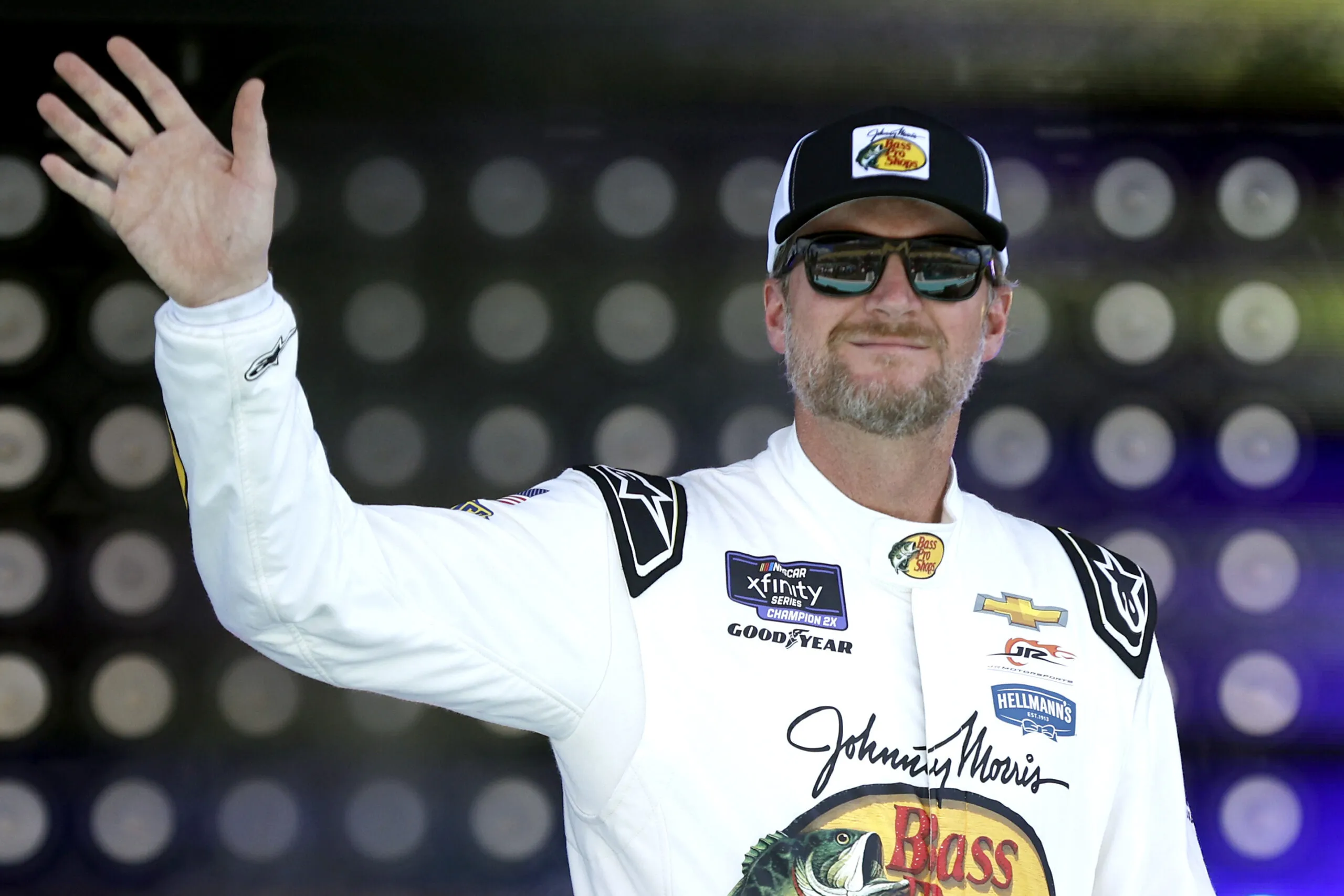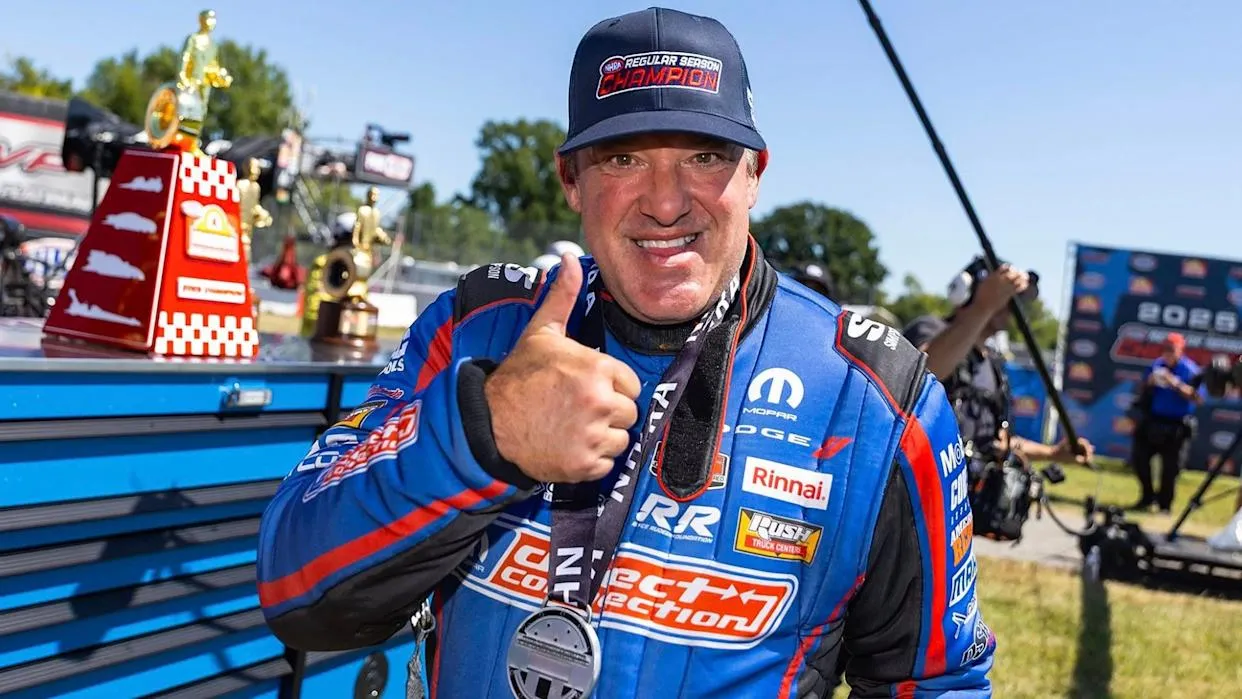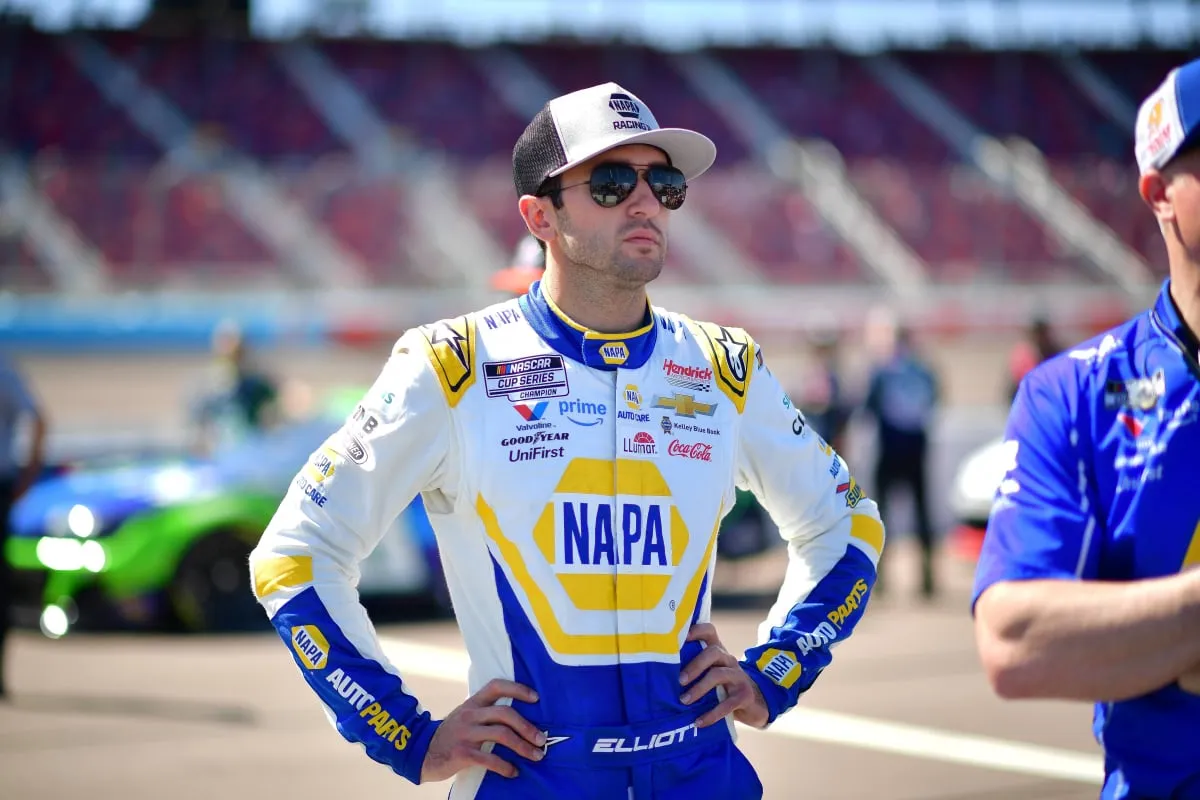
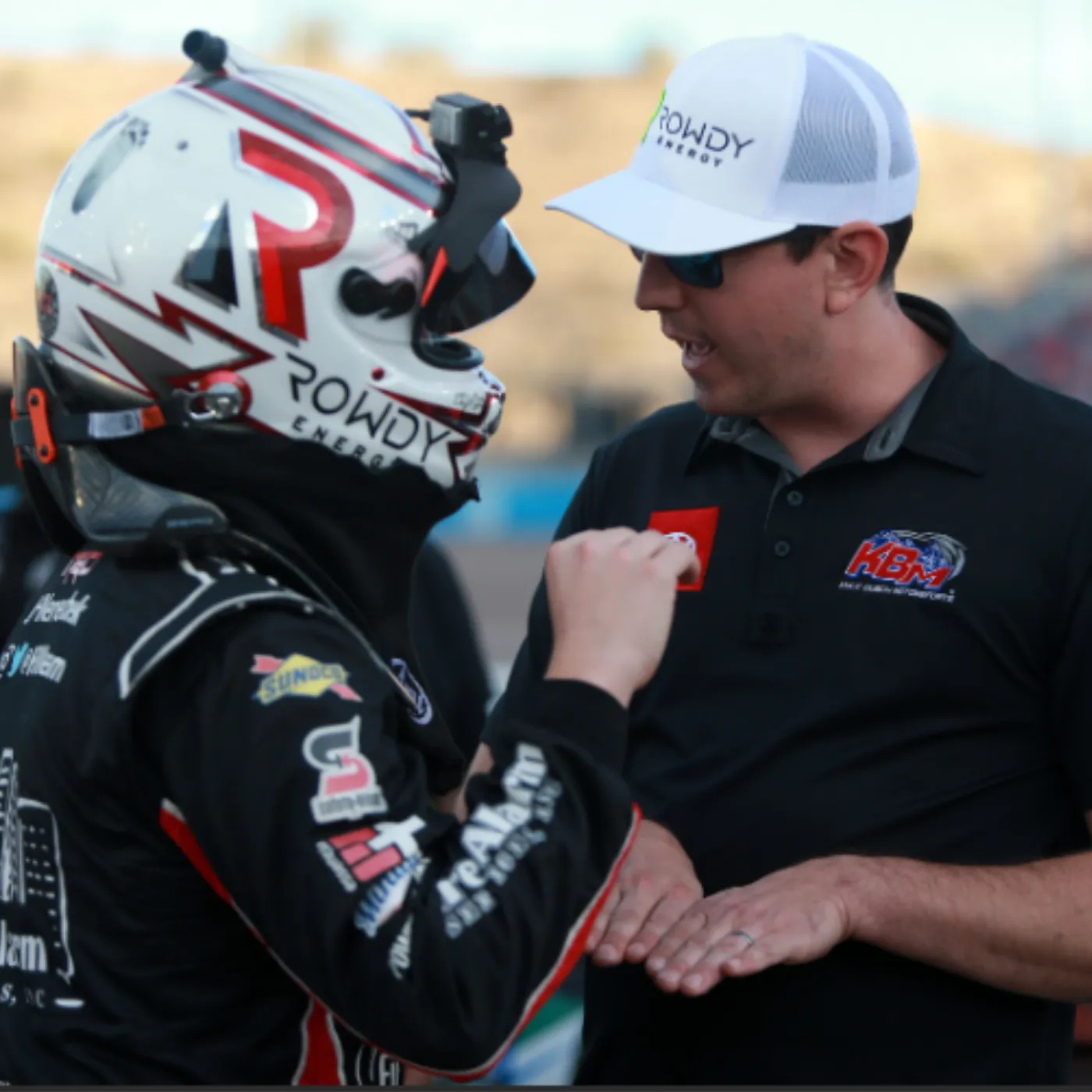
He Was NASCAR’s Most Hated Star—Then Kyle Busch Did the Unthinkable
How Kyle Busch Went From NASCAR’s Most Hated Star to Its Most Complex Hero
At one point in time, Kyle Busch didn’t just wear the title of NASCAR’s most hated driver—he owned it. He leaned into it. He fed off the animosity like fuel on a fire. It wasn’t just that he won so often or that he had one of the most aggressive driving styles the sport had ever seen. It was the attitude. The defiance. The smirks after wrecks. The unapologetic interviews. The way he stormed down pit road with his helmet still on, jaw tight, voice sharp, unapologetic and raw. He wasn’t trying to play the game the way everyone else did. Kyle Busch was building his own game, and if you didn’t like it, he wasn’t going to beg for your approval.
He became a villain. Not the kind you boo out of habit, but the kind that made you feel something real. Love him or hate him—and most chose the latter—you couldn’t ignore him. He was NASCAR’s lightning rod, a driver so talented and yet so divisive, fans would show up just to see him lose. And he knew it.
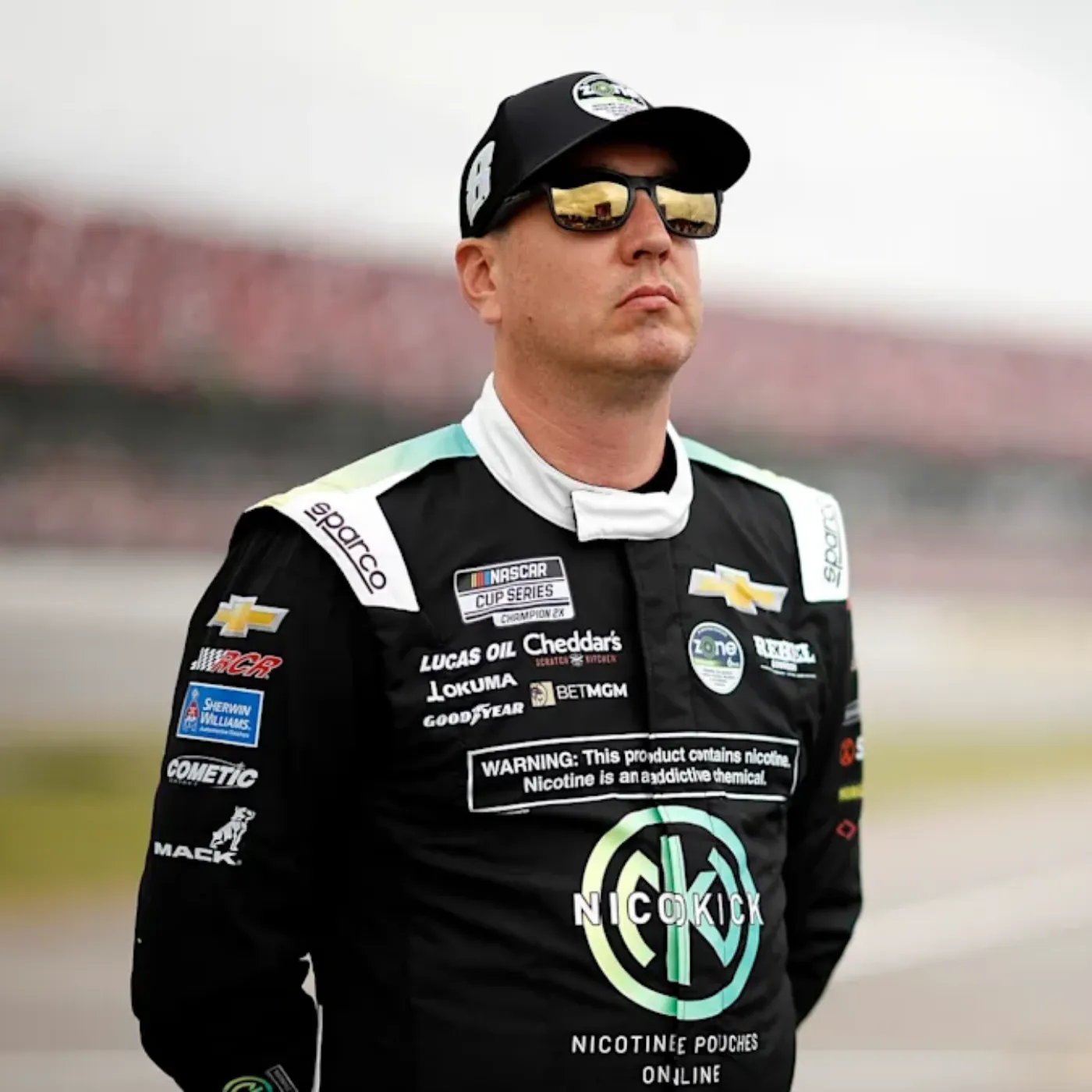
But in the span of a few years, something nobody predicted started to happen. Slowly, subtly, and then all at once, Kyle Busch began to change. And by the time the 2024 season reached its peak, the man who once weaponized hatred was now commanding something far more dangerous in the world of sports.
He was earning respect.
The Origins of the Hate—And Why It Ran So Deep
The anger toward Kyle Busch wasn’t born in one moment. It was a slow build, forged in crashes, interviews, rivalries, and a refusal to play the likable underdog. In a sport with roots in Southern humility and hard-earned loyalty, Busch’s brashness was gasoline on tradition’s fire. He wasn’t interested in being anyone’s hero. He didn’t smile when he won. He didn’t thank sponsors in post-race interviews the way PR teams coached most drivers to do. He told the truth. His truth.
And it cost him.
Fans of Dale Earnhardt Jr., Jeff Gordon, and even his own brother, Kurt Busch, often singled him out as the sport’s problem child. He became a one-man heel turn—a driver so aggressively unapologetic, it felt like he was inviting your hatred. And on the track? He backed it all up with results. Wins in Trucks, Xfinity, and Cup Series. Burnouts that left skid marks in the hearts of his critics.
But there’s a difference between being hated and being empty. Behind the sharp edges, there were signs—quiet, rare, almost imperceptible—that Kyle Busch was carrying something heavier than just ego. Losses stung more than he let on. Injuries wore him down more than he admitted. And as years passed, a quiet weariness began to settle in his eyes during post-race pressers. He was still fast. Still sharp. Still feared. But the mask was starting to slip.
And what came next, no one expected.
The Crash That Cracked the Shell
The turning point wasn’t a speech, or a viral moment, or a social media rebrand.
It was pain.
In 2015, Kyle Busch suffered a devastating crash at Daytona that left him with a compound fracture in his leg and a fractured foot. The sight of him being wheeled away wasn’t just heartbreaking for his fans—it was shocking even for his critics. For the first time, the bulletproof villain looked human. Vulnerable. And when he returned just 11 weeks later, limping and stubborn as ever, something had changed.
He didn’t say it. He didn’t show it. But those who watched closely noticed.
He wasn’t just driving with rage anymore.
He was driving with purpose.
And though it would take years for fans to fully see the transformation, that crash planted the seed. The hatred that once fed him was no longer enough. He needed something more.
A Reputation Reborn, One Quiet Gesture at a Time
The story of Kyle Busch’s redemption isn’t loud. There was no documentary reveal. No PR campaign. It happened quietly. In the shadows. In the places where cameras don’t usually follow.
It started with young drivers. Stories began surfacing about Busch offering setup advice, donating equipment, and even inviting up-and-coming racers to train at his facility. Some thought it was a fluke. Others assumed he was trying to reshape his image. But then came the letters. Handwritten. Sent to injured fans, former pit crew members, and even to the family of a late track official who had once disciplined Busch in his rookie year.
These weren’t public gestures. They weren’t posted on social media. They were personal. Private. Real.
And when they started leaking into the light, a new narrative emerged.
Maybe the villain was never the full story.
Maybe the man behind the visor was more complicated than anyone wanted to admit.
The 2024 Charlotte Moment That Silenced the Boo Birds
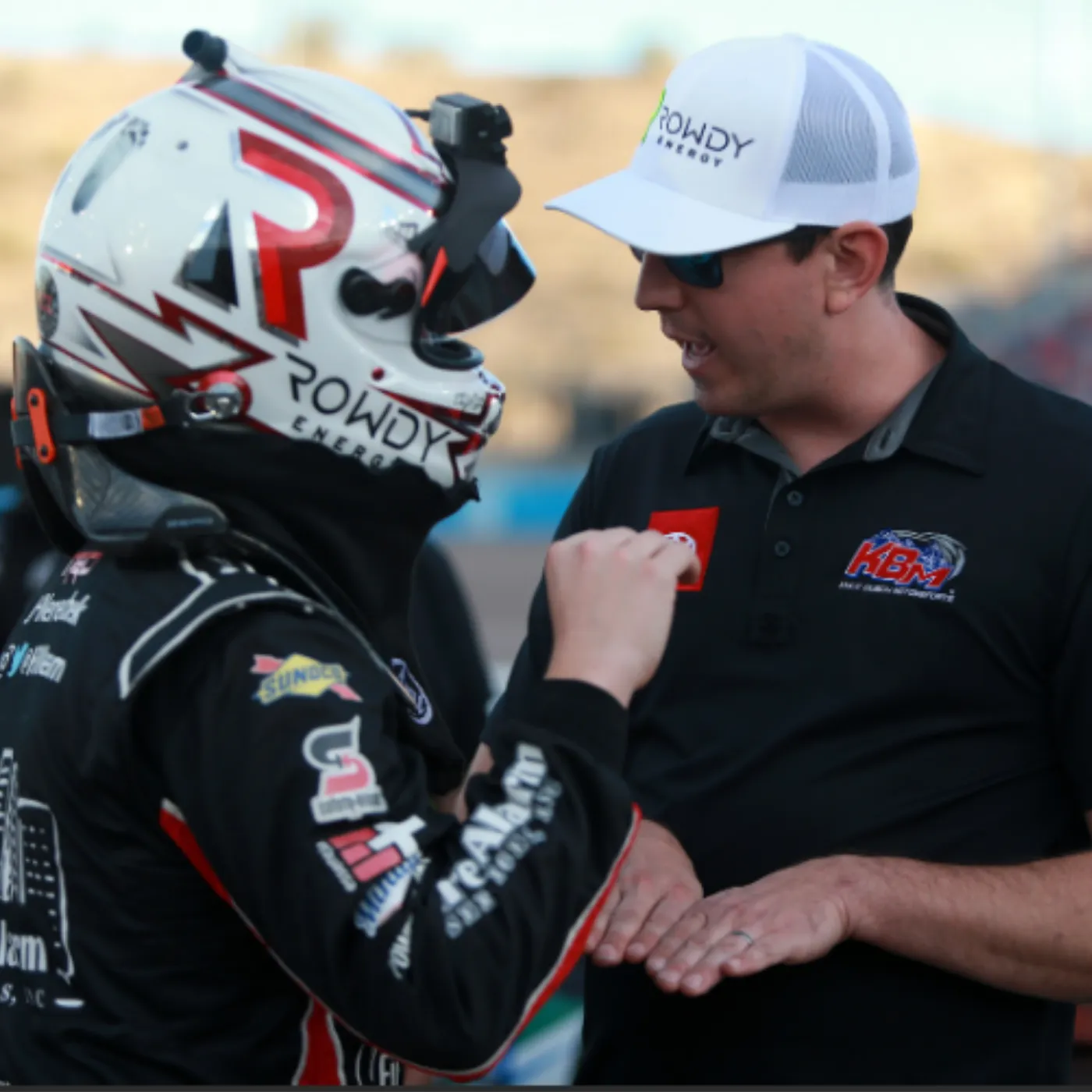
There’s a moment that fans will talk about for years—and it didn’t happen behind the wheel.
At the 2024 Coca-Cola 600 in Charlotte, Kyle Busch suffered a rare early exit. A mechanical failure parked his car before Stage 2 even began. Normally, this would be a powder keg—a broken headset, a storm-out, a camera-ready tantrum. But instead, Busch walked away from his pit box, climbed into the stands, and sat down quietly among the fans.
No security. No cameras. Just Kyle.
He watched the race with a hoodie pulled over his face, quietly sipping a Coke as if he weren’t the most controversial figure in the entire stadium. For nearly an hour, no one noticed. Then a teenage fan sitting two rows behind recognized him. The kid didn’t yell. He didn’t ask for an autograph. He just stared.
And Kyle Busch nodded back.
That image—one still frame of NASCAR’s most polarizing star choosing to watch rather than rage—went viral. Not because it was dramatic. But because it was real.
And in that moment, Kyle Busch wasn’t hated.
He was human.
The Man Who Refused to Be Defined
Today, Kyle Busch is still aggressive. Still brutally honest. Still controversial.
But he’s also something else: complete.
He’s a father. A mentor. A champion. A veteran. A driver who has nothing left to prove and yet continues to race like his career is still on the line. And most importantly, he’s someone who no longer needs to fight the crowd.
Because he already won the war.
Not the war for stats—he won that years ago. Not the war for approval—he never asked for that. But the war for identity. The battle to stay true to himself, through the noise, through the hatred, through the broken bones and broken headlines.
Kyle Busch didn’t beg for your forgiveness.
He earned your respect.
And now, for the first time in a long time, people are finally listening—not just to the results, but to the story.
A story of evolution.
A story of redemption.
A story that proves even in NASCAR, the most hated star can still become the most unforgettable.








